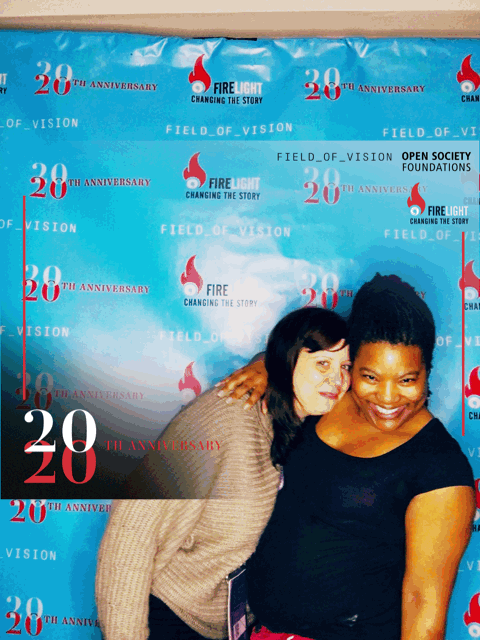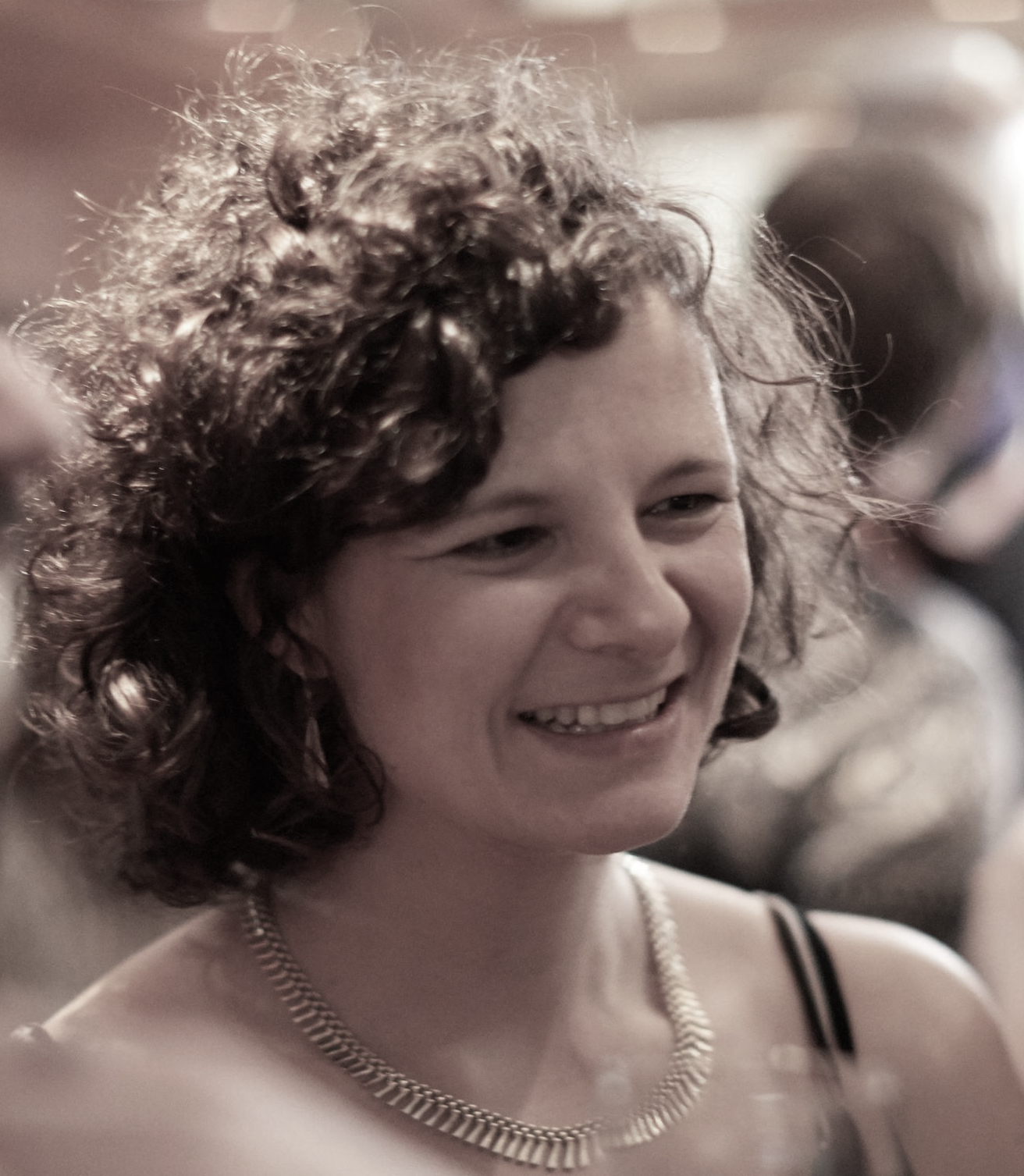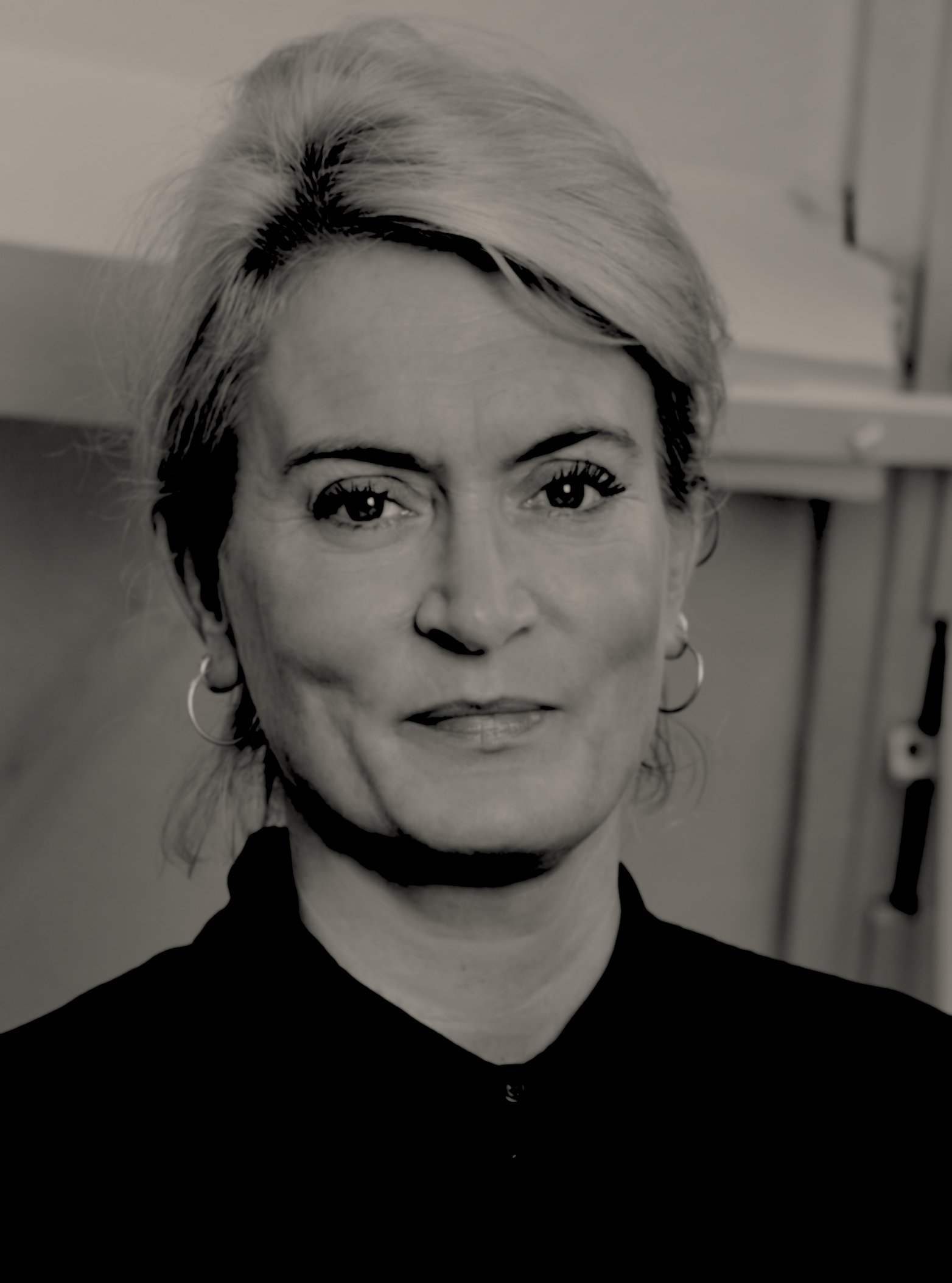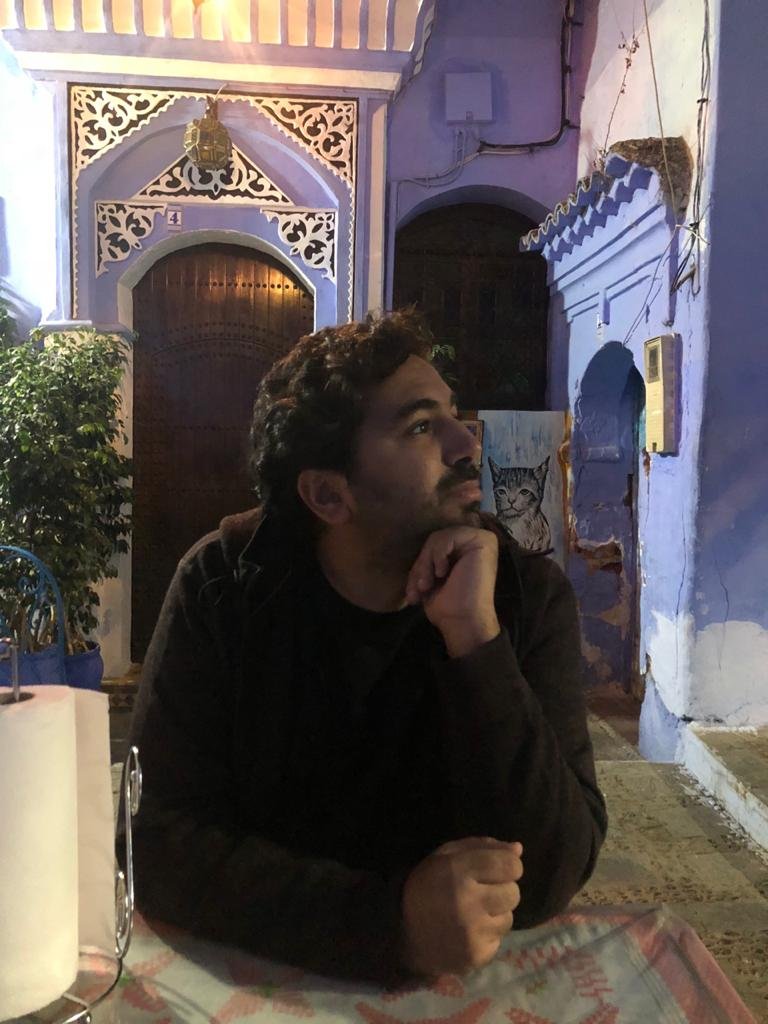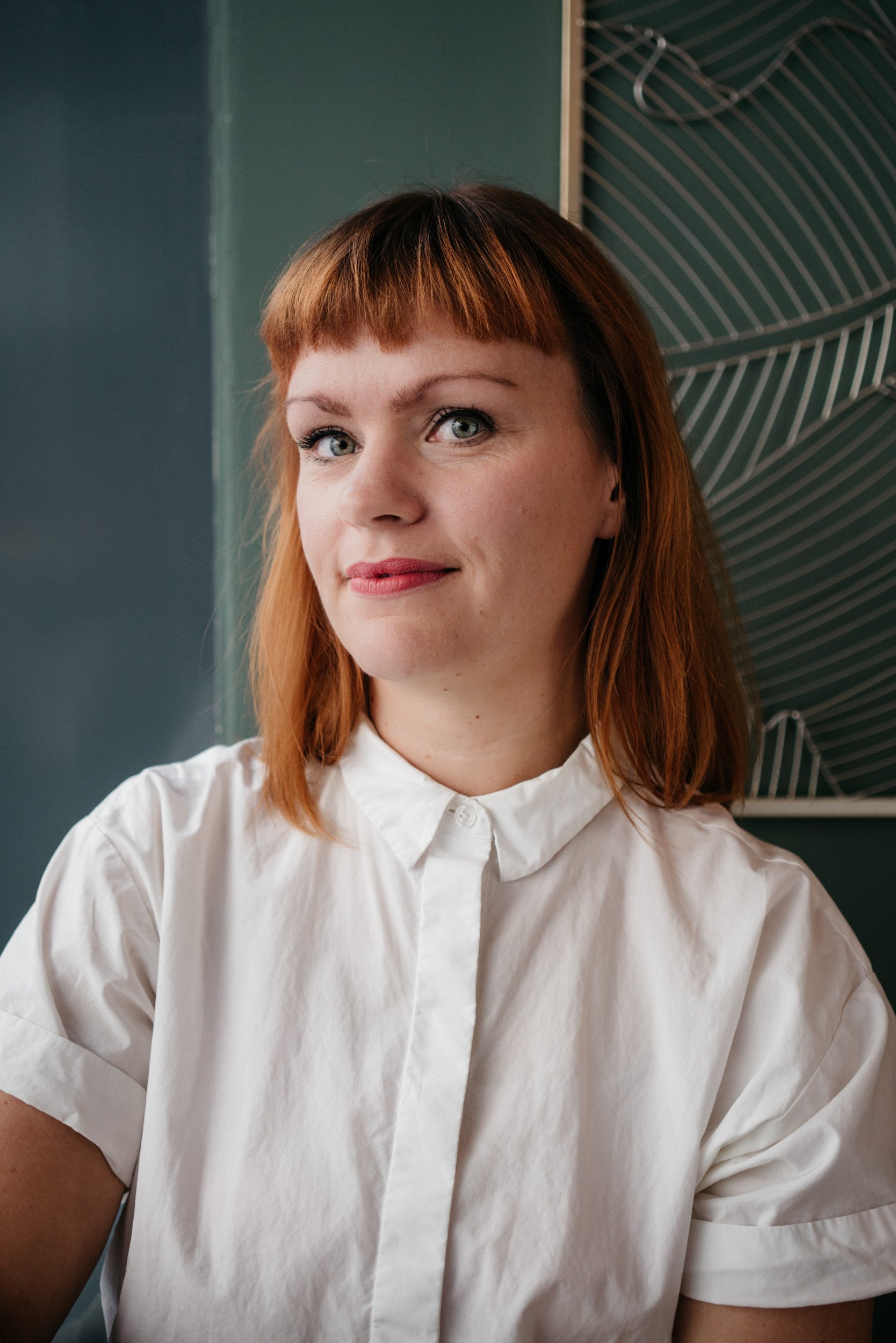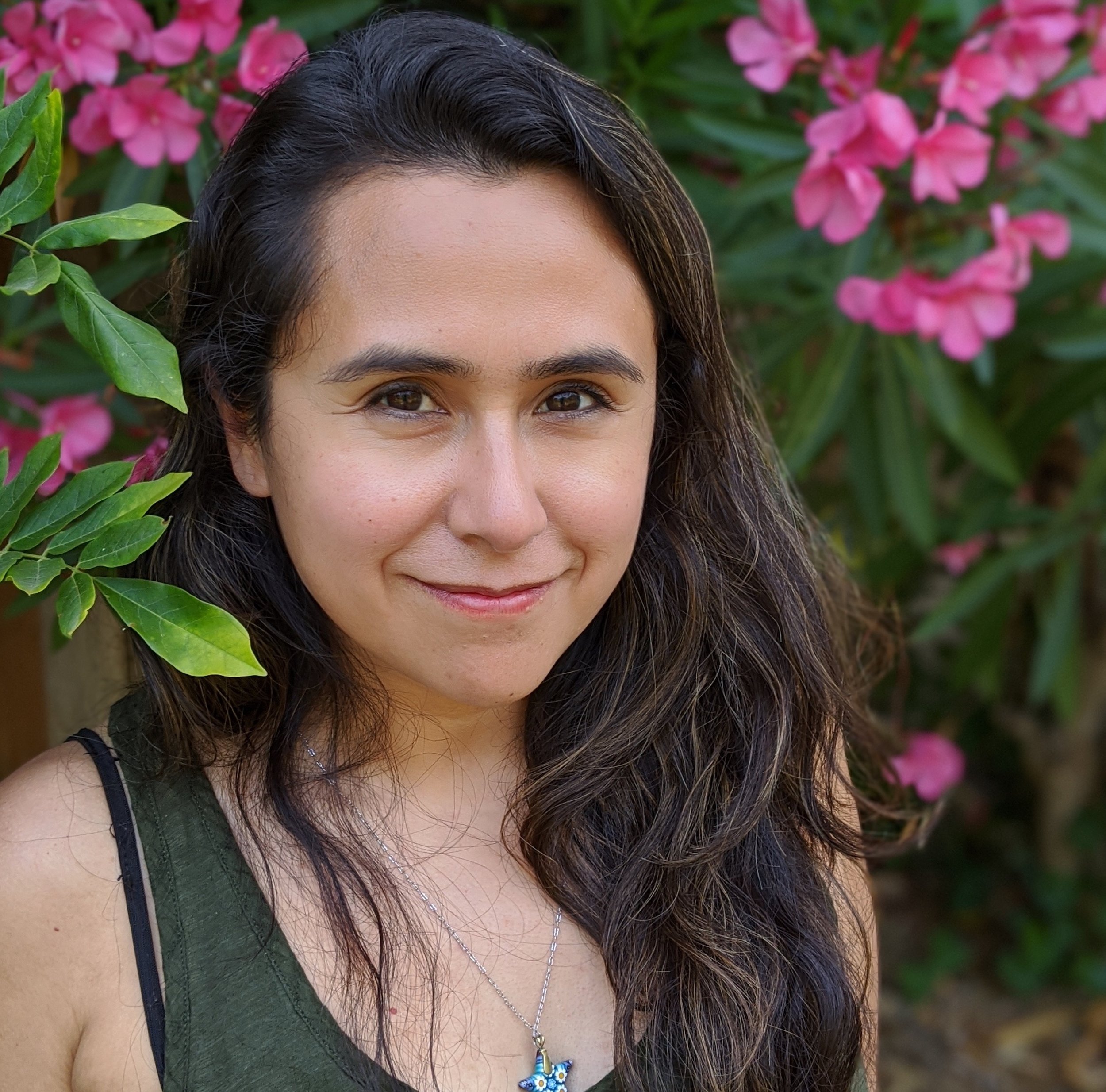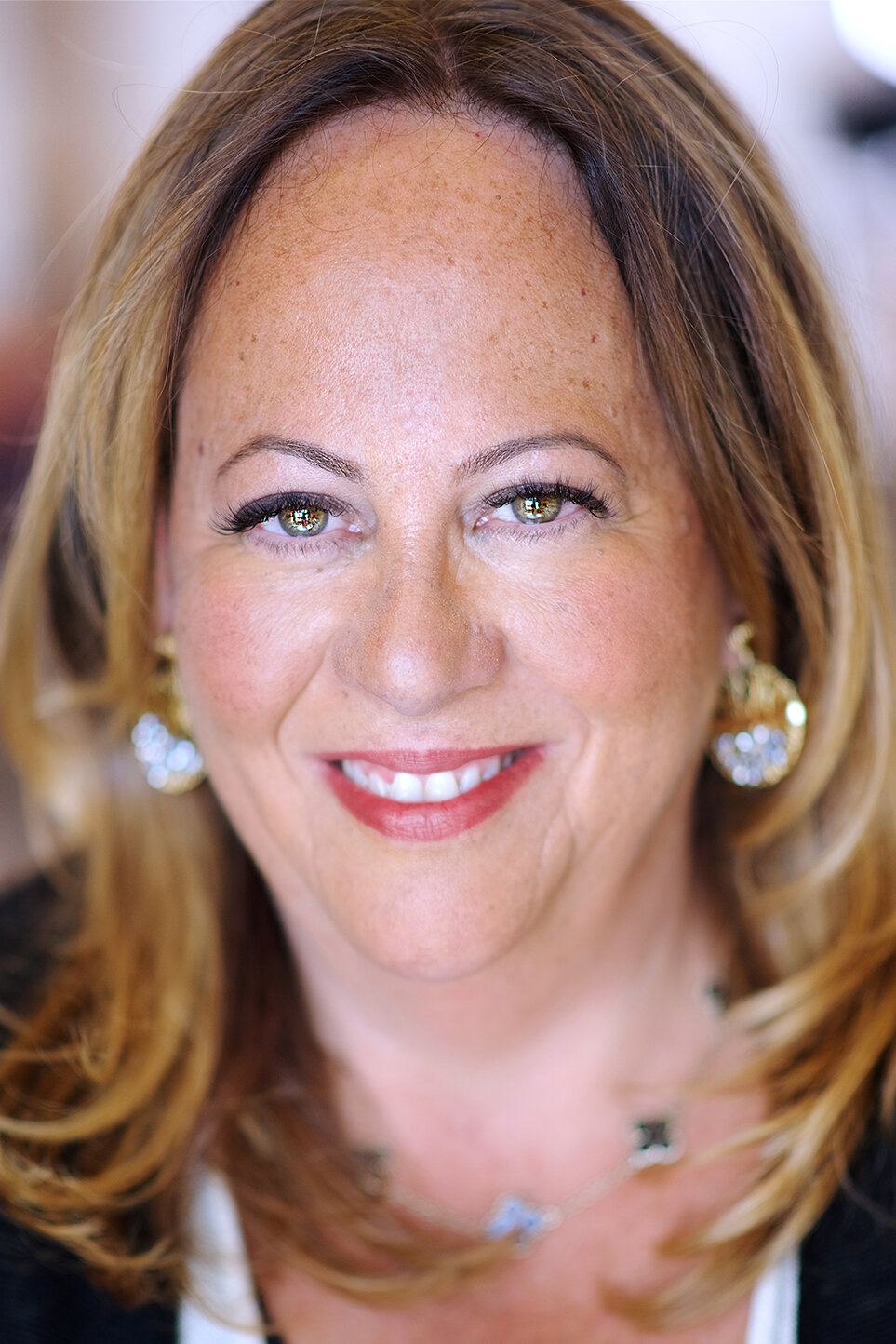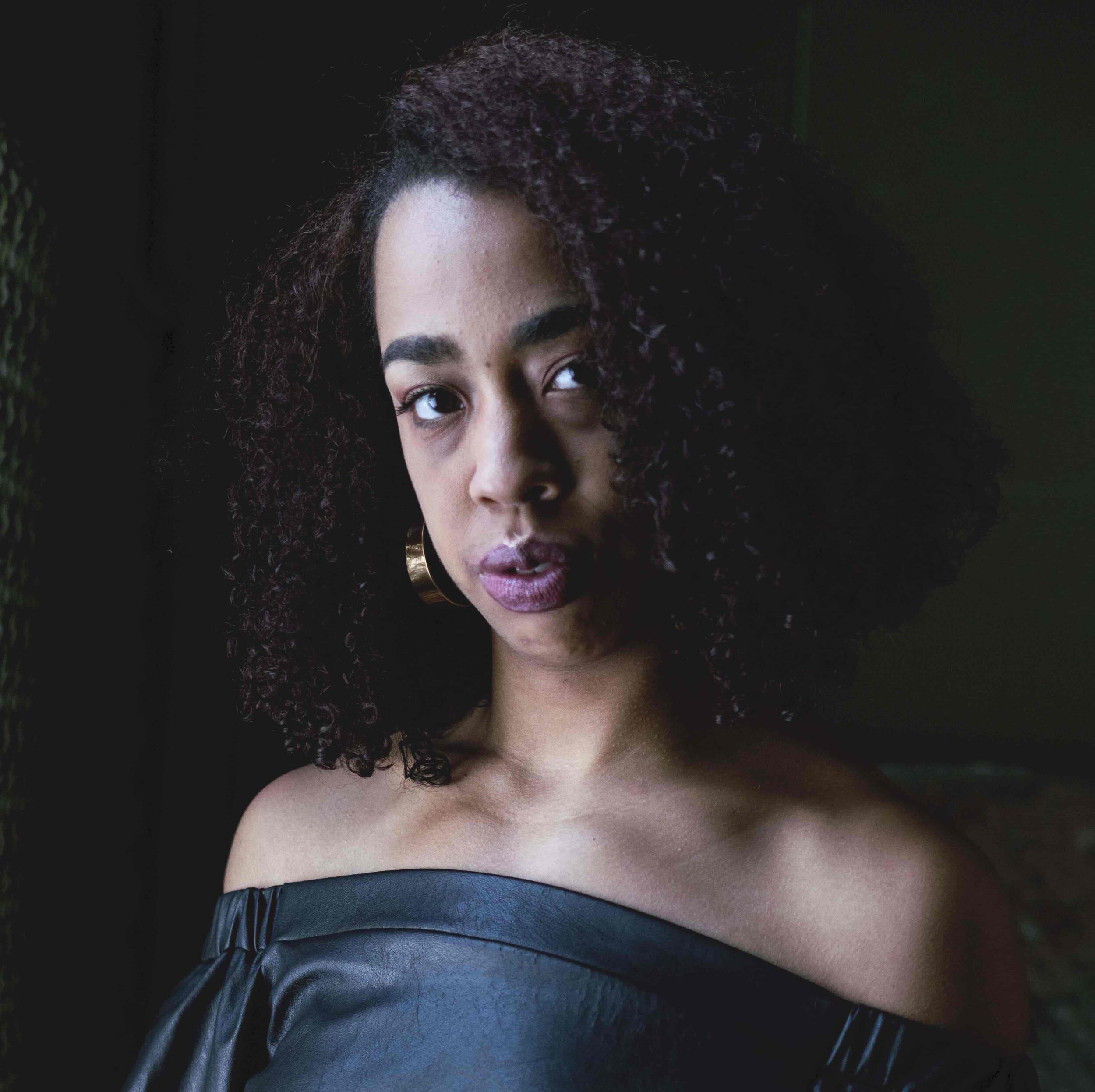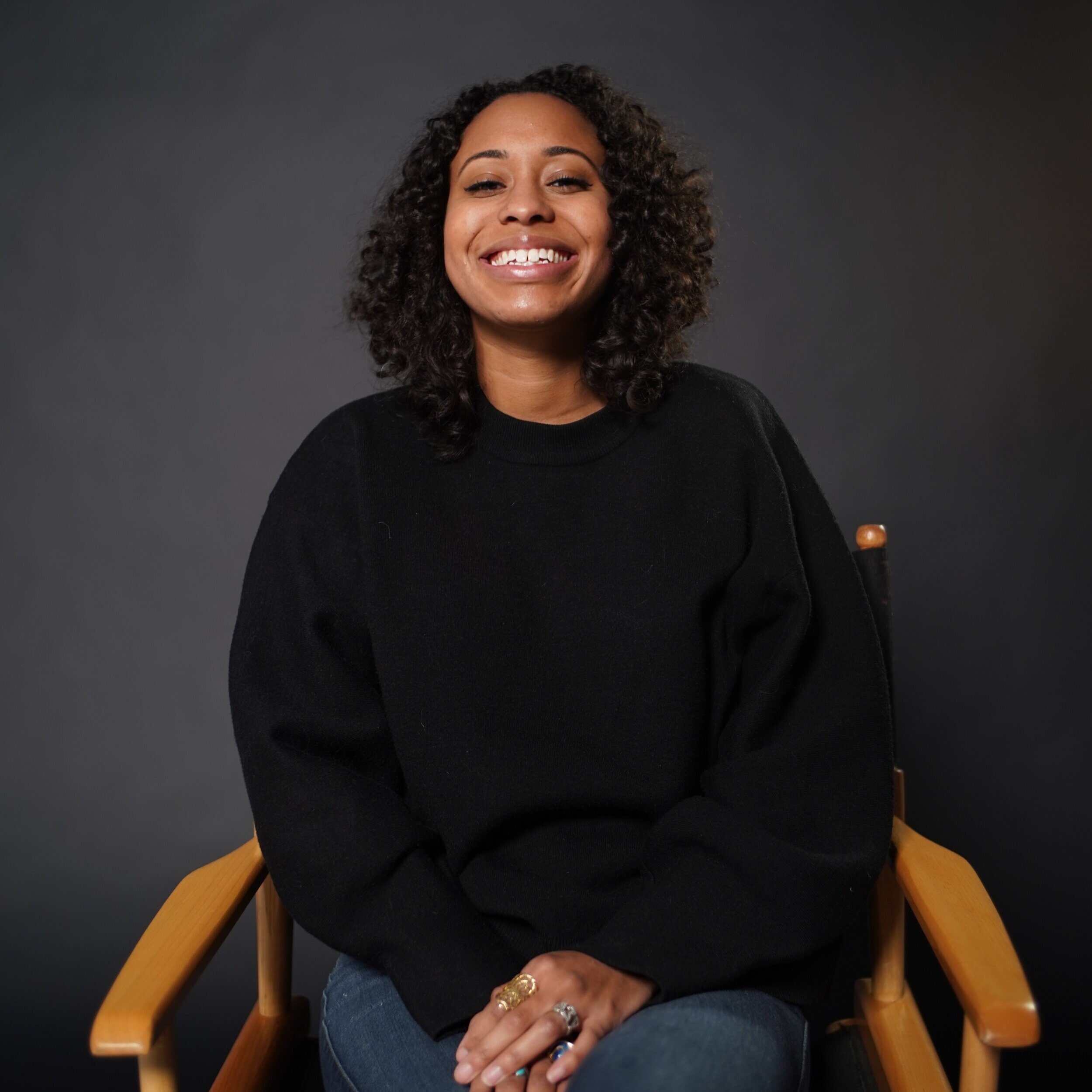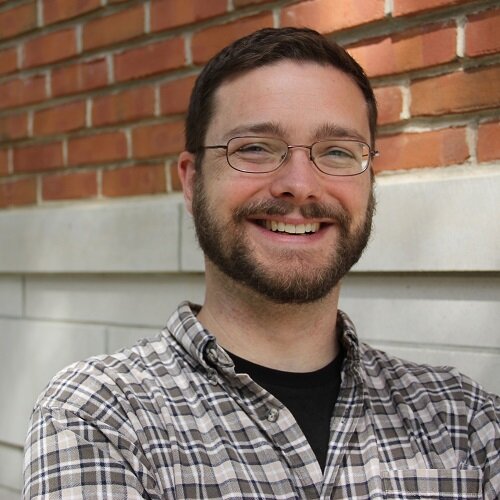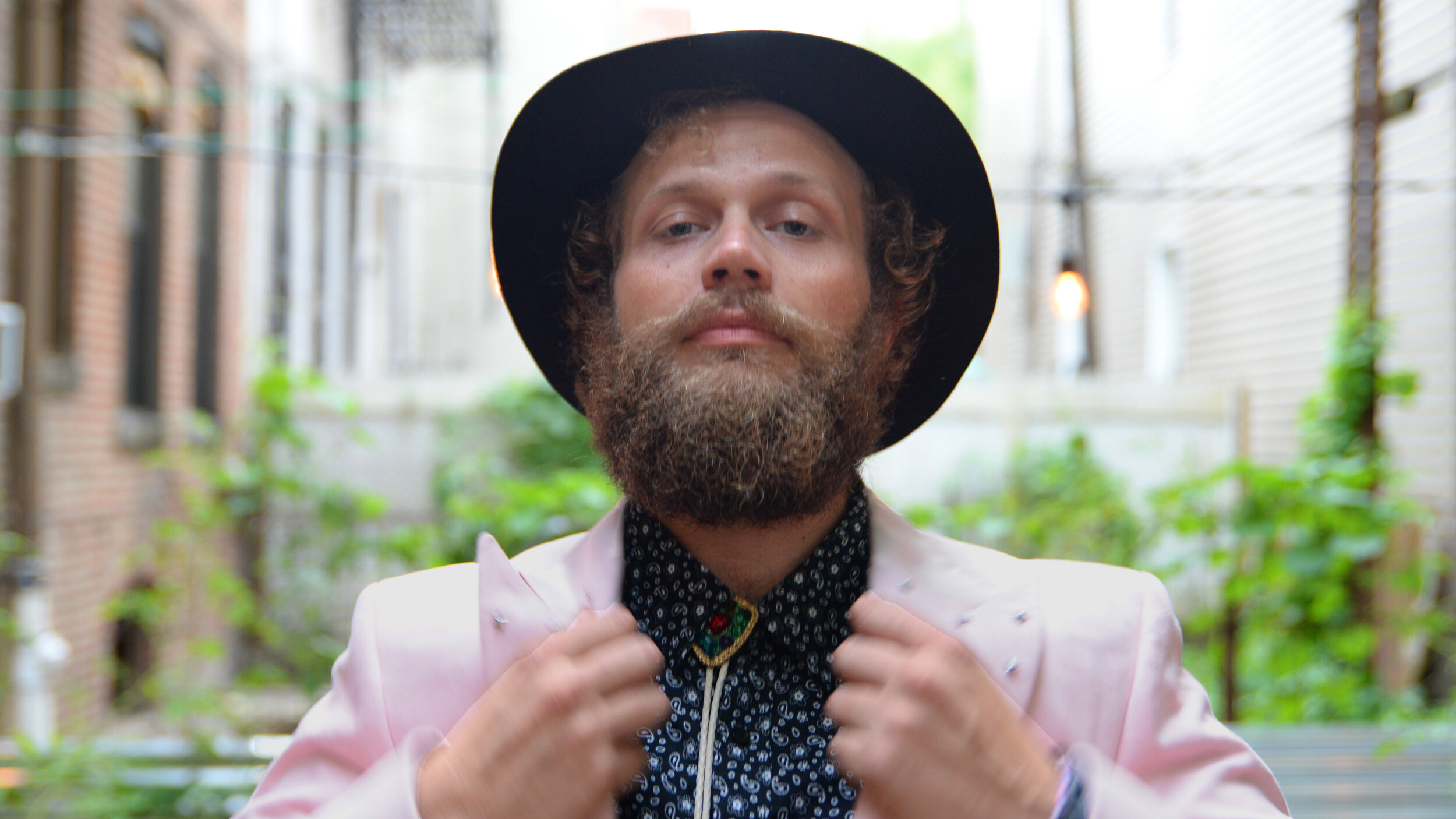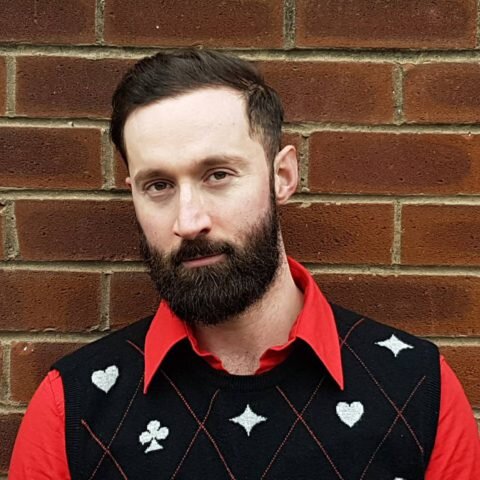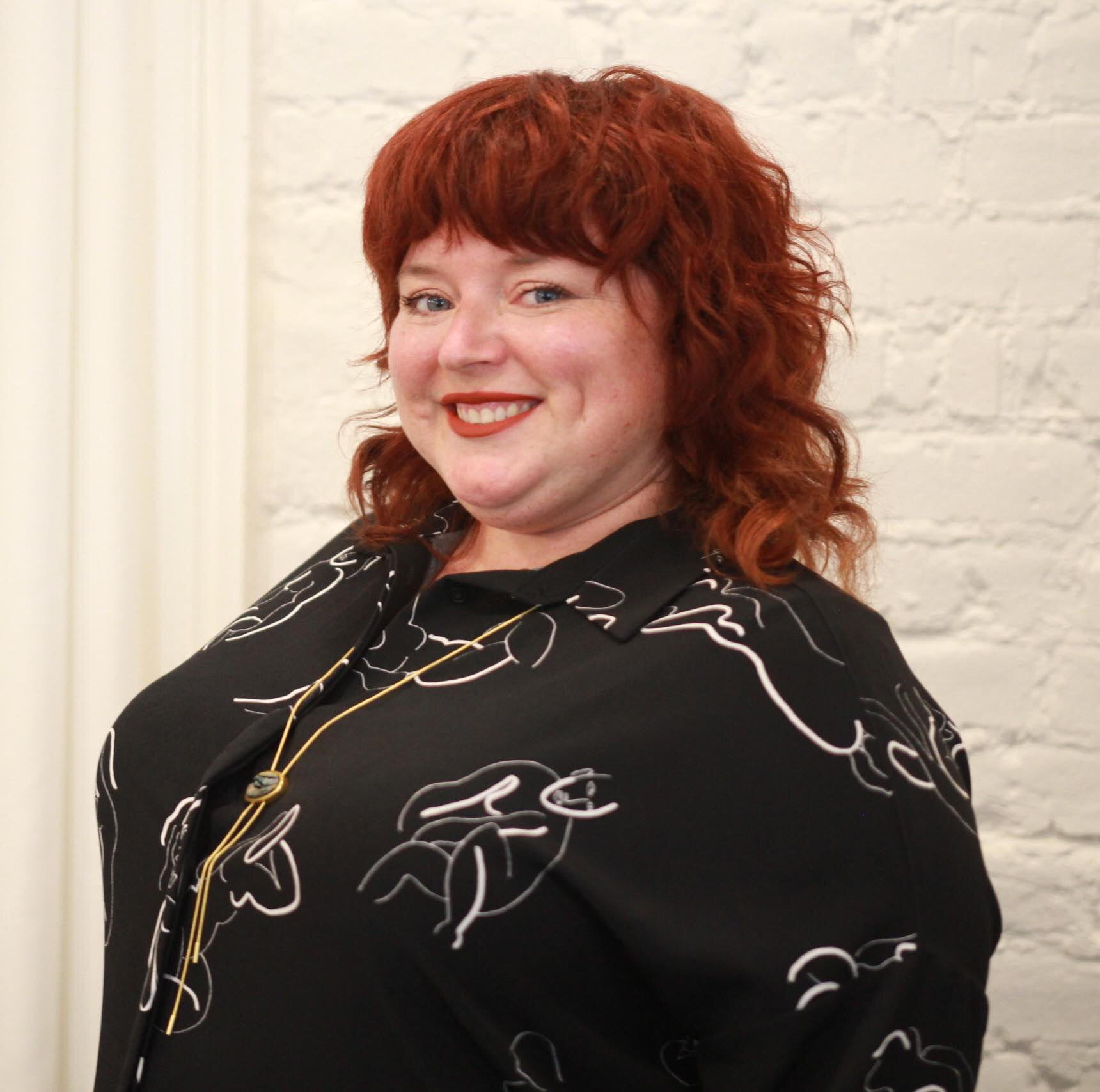
An #UnapologeticDocs podcast that celebrates all of us! #tellyourstories
WUWD@ DOK Leipzig 2025 with Disability Media Alliance
Photo Credit: Ranell Shubert
[Image Description: Ranell is a white woman with straight, medium brown hair styled to shoulder length with a tidy center part. She wears a black blouse featuring a white daisy floral pattern and a tie-neck detail. The background consists of greenery, including leaves and branches, giving a natural, outdoor setting.}
Photo Credit: Claudia Chavez
The image features a woman with long, wavy black hair and light to medium skin. She is wearing a bright red top under a dark denim or denim-like jacket, adding a casual, stylish contrast. Her expression is gentle and calm, with a slight smile. She is standing against a stone wall that serves as a textured, neutral background, highlighting her natural look. The lighting is soft and natural, accentuating her facial features and the color contrast between her outfit and the stone wall.
Photo Credit: Jennifer Crystal Chien
[Image Description: Jennifer, pictured from the chest up, wears a black sweater, a grey, knitted winter cap, and a pair of black framed glasses. She looks directly into the camera.]
Filmmaker, activist, and co-founder of Re-Present Media Jennifer Crystal Chien joins host Toni Bell in examining the need to generate new and more authentic representations and portrayals of BIPOC communities and expand those stories to other ways of storytelling.
This discussion engages the vital question of who is determining what is of interest and to whom. The question of an audience is an important one because it is often asked from the white dominant perspective, which influences the filmmaking process and limits topics and story arcs deemed acceptable for mainstream storytelling, thus barring some BIPOC filmmakers from accessing funding structures if they do not follow a specific type of mainstream narrative.
Jennifer's theory of change for the field is rooted in liberation and the spirit of the song she picked for this episode by the late great Curtis Mayfield, “Keep On Keeping On”.
Photo Credit: Taz.de
[Image Description: Jihan is pictured from the chest up. She wears a white cotton long-sleeved shirt with a blue design on the shoulders. She wears a necklace with large beads Her curly hair rests on her shoulders.]
During this conversation, I speak with the filmmaker, archivist, and the artistic director of Dox Box, Jihan El Tahri about the manifesto, “Liberate the Image.” The manifesto was a call to action to make archives more accessible to content creators living in the Global South. During the conversation we discussed:
Archival preservation of assets of those who are part of the Global Majority.
Who gets to monetize archives and when does monetization make access to historical assets prohibitive.
The role archivists play in the preservation of history and limitations due to limited staff, storage capacity, and adequate facilities.
Access to non-commercial archives such as museums, community organizations, and individuals.
Licensing struggles across the bordersg.
Our latest episodes!
Photo Credit: Jennifer Crystal Chien
[Image Description: Jennifer, pictured from the chest up, wears a black sweater, a grey, knitted winter cap, and a pair of black framed glasses. She looks directly into the camera.]
In this episode, I speak with Jennifer Crystal Chien, Anne Scherter, and Dr. Lauren Walsh. Together, we dive deep into the urgent conversation around ethical accountability in nonfiction visual media—whether documentary, photography, or video journalism. We explore the origins of the “Cause No Harm” initiative, the gaps in current industry standards, and their collaborative effort to develop a comprehensive guide to protect participants’ rights and dignity. From informed consent and trauma-informed practices to the broader application of human rights law, this discussion is both a call to action and a blueprint for change. The spirit of this episode is captured in our song of the week: “Revolution” by Arrested Development—a reminder that transformation is not only necessary, but possible.”
Photo Credit: Jennifer Crystal Chien
[Image Description: Jennifer, pictured from the chest up, wears a black sweater, a grey, knitted winter cap, and a pair of black framed glasses. She looks directly into the camera.]
In this episode, I speak with filmmaker, mentor, activist, and co-founder of Re-Present Media, Jennifer Crystal Chien. During our conversation, we chatted about how she got into docs, her commitment to advocacy, and the field-building and changing work at Re-Present Media. Jennifer's theory of change for the field is rooted in liberation and the spirit of the song she picked for this week’s episode by the late great Curtis Mayfield, “Keep On Keeping On.”
Photo Credit: Dox Box
[Image Description: B&W photo. Marion is a white woman with curly shoulder-length hair. She is pictured from the chest up. She wears a necklace and a top with spaghetti straps. She smiles.]
In this episode, I speak with doc industry professional, Marion Schmidt. During our conversation, we chat about how she got into docs, her time in Egpyt during the Arab Spring, and her founding of Dox Box and the initiative, the International Documentary Convention. We also chat about the organization she co-founded with past guest Brigid O’Shea, the Documentary Association of Europe. Because the Documentary Association of Europe is about opening doors and breaking chains, this epsode’’s song is Freedom by Andreya Triana, Our conversation was recorded in January 2022.
Photo Credit: Jerome Thomas
[Image Description: Jacquil is pictured from the chest up. He wears a beige Kangol cap and a yellow and white patterned shirt over a white t-shirt. He smiles. His head is turned slightly to the side.]
In this episode, I speak with a friend, filmmaker, and professor, Jacquil Constant. During our conversation, we chat about our time working on Bridging the Divide: Tom Bradley and the Politics of Race, BADWest, and his documentary short, Haiti is a Nation of Artists. We also talk about his Haitian heritage and the festival he founded which is now in its seventh year, the Haiti International Film Festival - how he started it and how it has grown even during the past few pandemic years. Starting a film festival from scratch is no small feat and Jacquil is truly a man with a vision, that’s why this episode’s song is Nipsey Hussell’s “That’s How I Knew.” Our conversation was recorded in January 2022.
Photo Credit: Scott Calonico
[Image Description: Scott, a bald white man, is pictured from the torso. He wears a white t-shirt, a blue and white patterned shirt, and a black jacket with an upturned color. He holds a pair of black glasses in his hand as they rest against his chin. He looks to the left.]
In this episode, I speak with film director Scott Calonico and archival researcher and producer Sandy Weeding. During our conversation, we chat about our first meeting at the Ji.hlava Documentary Film Festival, Sandy’s experiences of Berlin before the wall came down, unique German archives, and their latest documentary short, Catwoman vs. the White House. The film which will screen on The New Yorker website for Black History Month celebrates a little-known moment in history when Eartha Kitt confronts Lyndon Baynes and Lady Bird Johnson with their performative initiatives for Black folks in the inner city and the problems of the Vietnam War. Soon after this encounter Earth Kitt was unofficially blacklisted in the U.S. She was fortunately embraced by Europe and the people of Franc specifically, so this week’s song is her rendition of the classic, “C’est si Bon.” Our conversation was recorded in February 2022.
Photo Credit: Brian Galderisi
[Image Description: Emma is pictured from the torso up against a black background. She has shoulder-length brownish, blonde hair and wears black glasses and red lipstick. She wears a black long-sleeved top.]
In the first full episode of 2022, I chat with the filmmaker and activist Emma Francis-Snyder about her Oscar-shortlisted short Takeover! We talk about her journey as a white person and the obligation to uncover and celebrate these hidden histories and all things Takeover! Including the history of the Young Lords, her many interactions with journalist and Democracy Now! co-host Juan Gonzalez. This week’s episode has not one but two songs! The first is the resistance anthem “Pa’lante” by Hurray for the Riff Raff. From 1948 to 1957, flying the Puerto Rican flag was illegal and so was singing patriotic tunes. The second song for this episode, “Que Bonita Bandera” by Pepe Y Flora, directly responded to that bigotry. Here is our conversation, which was recorded in January 2022.
Photo Credit: Caroline Westdijk
[Image Description: Laura, a white woman with short blond hair, is pictured from the torso up. She wears a dark-colored button-down shirt and hoop earrings. She has a slight smile on her face.]
In this episode, we continue our celebration of the 2021 edition of IDFA as I chat with the Senior Programmer of the festival, Laura van Halsema. We talk about how she got into docs, her nearly 20 years with IDFA, and take a deep dive into the unConscious Bias Focus program at the festival this year. The song for this episode is from the film Chelas Nha Kha which is part of the unConscious Bias strand and is entitled “Chelas City,” music by Bataclan 1950 and lyrics by Baguera, Islu, and Gohu. The film is a collaboration between Bagabaga Studios and Batalan 1950 is about the people and kids growing up in Chelas which is a neighborhood in Lisbon. During our conversation, we spoke about the anthropologist Clifford Geertz’s concept of the “webs of influence.” Laura thought of this film and about the filmmakers who live in that area as they learn to define for themselves their own realities. The first love of Bataclan 1950 is making music which is prominently featured in the film. Here is our conversation which was recorded in November 2021.
Photo Credit: Fatma Abed
[Image Description: Mostafa is pictured from the torso up. He sits at a table with a blue and pink patterned table cloth and a roll of paper towels. He has his elbows on the table and looks to the left with one hand underneath his chin. He wears a brown sweater. He is sitting in an open courtyard that is painted in blue and white. To his left is a graffiti drawing of a cat.]
In this episode, I speak with the film director & co-founder of Seen Films, Mostafa Youssef. We chat about his near lifelong love of film, the entertainment industry in Egypt and its impact throughout the Arab-speaking world, and the unique challenges of filmmakers on the Continent. We also get into the many artist development programs and resources that are under the Seen Films umbrella including a free-to-use opensource post-production unit and their magazine, Terr.so, the only online magazine and portal on cinema, audiovisual media, film criticism, and filmmaking in Arabic. Mostafa is also the producer of Homemade Stories which will have its world premiere at IDFA 2021. Mostafa is a Bruce Springsteen fan, so this week’s song is “Hello Sunshine.”
Photo Credit: Adam Sings in The Timber
[Image Description: Raven wears a black and white patterned shirt as they smile into the camera. Their hair is short and they wear glasses. They are pictured from the chest up. They wear a small button that reads, “Be a good ancestor.”]
In this episode, I speak with friend and writer, director, co-producer, Raven Two Feathers. During our conversation, we chat about when we first met and my struggle with the Seattle hills, the 4th World Media Lab, their VR project, “A Drive to Top Surgery,” which screened at ImagiNative this year. their zine “Qualifications of Being,” and their new production company, Raven and Relatives. Raven is unapologetically Cherokee, Seneca, Cayuga, Comanche and because American Thanksgiving is just right around the corner, Raven selected the Halluci Nation’s (formerly known as A Tribe Called Red) “Burn Your Village to the Ground.” The band themselves delivered the following message about the holiday:On this fourth Thursday of November, you might ask yourself: do Indians celebrate Thanksgiving? Well… Thanksgiving is a complicated holiday for Native people. In a way, each day is a day of thanksgiving to the Creator for the original people of Turtle Island. This doesn't mean that we don't enjoy turkey, pie, and family as much as the next person, but at the same time, the Thanksgiving myth largely shared in mainstream culture perpetuates a one-sided view of a complicated history surrounding this holiday.
Photo Credit: Delphine Millet
[Image Description: Mirjam, a white woman with shoulder-length red hair, sits inside in front of a dark background with white marks. Her head is turned slightly to the side and she wears a white buttoned-up top with a collar.]
In this episode, I speak with the publicist and one of the founders of NOISE Film PR, Mirjam Wiekenkamp. During our conversation, we get into her publicist origin story, some of the differences between PR firms in the US and Europe, the unique ways a publicist can position documentary films in the European documentary festival landscape, and how publicist and impact producers can often build upon and support one another’s work on behalf of a filmmaker. Mirjam and NOISE Film PR are representing several films at DOKLeipzig and IDFA that are part of the Steps’ Generation Africa program. To celebrate these young filmmakers from the Continent, this week’s song is Kokoroko’s “Abusey Junction.” KOKOROKO (meaning 'be strong' in Urhobo), are a collective of young musicians brought together by a love for Afrobeat led by trumpeter Sheila Maurice-Grey. They specialize in a soul-shaking, horn fuelled sound with West African roots and inner London hues. “Abusey Junction” is a ballad written by guitarist Oscar Jerome. It was written on the roof of a compound in Gambia where the band spent time last year immersing themselves in the soundscapes of the region.
Photo Credit: Craig Hanna
[image Description: Brenda is pictured from the chest up and has black shoulder length and light brown skin. She wears a dark green tank top and a necklace with a multi-colored star charm. She stands before a background filled with green foliage and bright pink flowers.]
In this episode, I speak with Mexican filmmaker and Co-Director of Video Consortium Mexico, Brenda Avila-Hanna. During our conversation, we chat about her latest feature project Libertad, the professional needs of Mexican content creators outside of urban strongholds such as Mexico City, the immigration conversation that’s happening or actually not happening in Mexico, and the educational distribution co-op New Days Films. The song for this week’s episode is PUEBLOS, by Lila Downs and Sara Currichich. The song speaks about Indigenous solidarity and strength without borders. Currichich is Guatemalan and Downs is Mexican-American with roots in Oaxaca, which feels particularly resonant to Libertad and many other themes of transnational solidarity addressed throughout the episode. As a plus, one of Libertad's Producers and DP's, Casandra Casasola, is the DP for the video to this song. Casandra is a Mexican, Indigenous (Mixteca) filmmaker.
Photo Credit: Ina Fichman
[Image Description: Ina is pictured from the neck up. She has shoulder-length dirty blond hair and wears a white v-neck top with a black jacket. She wears gold and diamond earrings and a gold necklace with black and gold accents.]
In this episode, I speak with Canadian producer extraordinaire, Ina Fichman. During our conversation, we chat the nuts, bolts, and knowledge needed to be a great international co-production partner, her work with the Documentary Organization of Canada, and the specific steps the organization took to ease some of the stress of pandemic for Canadian filmmakers. We also discuss some of her most recent work on the films such as Laila at the Bridge, Stray, and The Gig Is Up, and her ongoing support of Palestinian filmmakers. For this episode, Ina chose a masterpiece written by her fellow Canadian Leonard Cohen, “Hallelujah.” Regarding the meaning of the song, Leonard Cohen said:
“This world is full of conflicts and full of things that cannot be reconciled. But there are moments when we can… reconcile and embrace the whole mess, and that’s what I mean by ‘Hallelujah’.
The song explains that many kinds of hallelujahs do exist, and all the perfect and broken hallelujahs have equal value. It’s a desire to affirm my faith in life, not in some formal religious way but with enthusiasm, with emotion.”
When one looks at Ina’s body of work, it is clear that documentary is the medium she has chosen to find meaning and reconcile the many contradictions that we face in life.
Photo Credit: Todd Gray
[Image Description: Ann is pictured from the chest up. She wears a black, long-sleeved top and a gold necklace. Her black hair is cut into a short bob and her head is titled slightly to the side. She looks to the camera as she stands against a beige and white blurred background.]
Photo Credit: Jin Yoo-Kim
[Image Description: Jin is pictured from the chest up. She wears bright red lipstick and has shoulder lengthed black hair. She wears a graphic print shirt that has a black background with swirly, multi-colored shapes. She stands against a white background in front of some foliage.]
In this episode, I speak with director, producer, and writer Ann Kaneko and producer Jin Yoo-Kim about their latest project, Manzanar: Diverted: When Water Becomes Dust. We chat about Ann’s very impressive matchmaking skills, their work on K-Town ‘92 and their reflections of the 1992 Rebellion, and how they successfully weaved the stories of environmentalism, the Indigenous, and Japanese-Americans into a beautiful tapestry. This episode’s song is classic, “We are the Children” by Chris Iijima, Nobuko Miyamoto, and "Charlie" Chin. The song was one of the first bits of artistry that defined the Asian-American identity. And the chorus is a call for all of us to unapologetically embrace every aspect of our beings. It reads, Sing a song for ourselves, What have we got to lose, Sing a song for ourselves We’ve got the right to choose.”
Photo Credit: Alison Boulier
[Image Description: Adam is pictured from the torso up. He wears a dark-colored long-sleeved sweater over a light-colored button-down shirt. He holds a white mug in his hands just beneath his chin. He gazes to the left. The photo is in B&W.]
n this episode, I speak with Oscar-Nominated, United Kingdom-born, and Canada-based filmmaker Adam Benzine. During the episode, we chat about his career in journalism, his move to Canada, his critically acclaimed work, Claude Lanzmann: Spectres of the Shoah, and his latest documentary project, The Curve, which is about the first 90-days of the COVID-19 pandemic in the United States. Because in so many ways the battles we are facing now so closely resemble those are parents and grandparents fought in the past, this episode’s song is Marvin Gaye’s timeless classic, “What’s Happening Brother.” Adam specifically connects to the following lyrics from the song, “When will people start gettin' together again? Are things really gettin' better, like the newspaper said? What else is new my friend? Besides what I read. Can't find no work, can't find no job, my friend. Money is tighter than it's ever been. Say, man, I just don't understand What's going on across this land.” Our conversation was recorded in July 2021.
Photo Credit: Jameel Bridgewater
[Image Description: Ashley is pictured from the chest up. She stands against a black background, wears a black sleeveless top, gold hoop earrings, and makeup. Her black curly hair is shoulder length.]
In this episode, I speak with DP and director, Ashley O’Shay. We chat about the uniqueness of Chicago filmmakers, How she discovered her love for cinematography, her work on national brands, her work on Surviving R. Kelly, and her feature debut, Unapologetic, which centers queer Black women in the Black Lives Matter movement. Because we’ve got to show love for Chi-town and It’s so important for Black folks to both stand in our righteous rage and joy this week’s song is Jamila Woods’ “Basquiat” featuring Saba.
Photo Credit: Eric D. Seales
[Resita is seated and pictured from the legs up. She sits in a wood director’s chair with a black canvas seat. She wears a long-sleeved black sweatshirt and jeans. Her curly hair is shoulder length. She wears several rings on her fingers. Her legs and hands are crossed. She has a big smile on her face.]
In this episode, I speak with journalist and filmmaker, Resita Cox. We chat about her local news career and why she decided to become a documentary filmmaker. We also discuss her latest project which is supported by Kartemquin Films, Freedom Hill a powerful film that celebrates Princeville, North Carolina, the first town incorporated by freed, enslaved Africans in America that is now suffering the impact of both environmental racism and climate change. Because Resita is a filmmaker who is not only true to her vision and her protagonists and in doing so, disrupts the status quo, the episode’s song is The Roots, “What They Do.”
Photo Credit: Ryan Gleeson
[Image Description: Matt is pictured from the chest up. He wears a plaid, white, tan, and black shirt over a black t-shirt and glasses. His hair, mustache, and beard, closely cropped. He stands against a brick and cement wall.]
In this episode, I speak with Matt Lauterbach, Grishma Shah, and Reveca Torres of All Senses Go. During our conversation, we chat about how their work with organizations and content creators ensures that media that is created is accessible for all, the accessibility changes the team would like to become the norm as we move into a post-Covid world, and how people with disabilities and their co-conspirators can work together effectively to make lasting, sustainable change that benefits us all. Because organizations like All Senses Go and others disrupt the notion that those who are labeled not mainstream need to seek outside validation, this episode’s song is Billie Eilish’s self-acceptance and self-love anthem, “My Future.”
[Image Description: Victoria is pictured from the torso up and sits in front of a starry, black background that is just out of focus. Her hair is slightly longer than shoulder length. She wears a red and black blouse and red lipstick. She smiles at the camera.]
In this episode, I speak with filmmaker and educator Victoria Thomas. In our conversation, we chat about her latest project, Born in New York, Raised in Paris, her teaching at the London Film School, the production company she founded, the Polkadot Factory, and the challenges of navigating a documentary and narrative film industry rooted in a white supremacist work culture that is resistant to change. Because just like many Black women, Victoria finds being in these spaces can be taxing and exhausting, to say the least, this episode’s song is Destiny Chid’s “Survivor.”
Photo Credit: Sibel Özen
[image Description: Rüzgâr stands by a large rosebush and leans their head into a large flower. Behind them is a high fence with flowering vines. The wear a multicolored shirt beneath a red jacket.]
In this episode, I speak with artist and filmmaker Rüzgâr Buşki. In our conversation, we talk about immigrating from Instanbul, where to get great Turkish food in Berlin, discrimination in Germany, and their current project, I’ve Got the Power. Because I’ve Got the Power explores how imagination and fantasy can be used as tool to process and heal grief and be basis for creating a new reality, this episode’s song is Gaye Su Akyol’s “İstikrarlı Hayal Hakikattir/Consistent Fantasy is Reality.”
Photo Credit:
[Image Description: Chester and Elegance stand next either in front of a reddish, brick wall. A window reflects the image of brick wall across from them. Chester wears a long black coat his had is turned slightly to look at Elegance. Elegance wears a knit cap, sun glasses, and a long, tan coat. He looks into the camera. They both have their hands in their pockets.]
In this episode, I speak with writer and director Elegance Bratton and producer and costume designer Chester Argenal Gordon. In our conversation, we chat about how they met, their latest documentary project Pier Kids. and the joys and strength needed to stay true to themselves and their protagonists’ stories and voices. Because they are my favorite power couple, this episode’s song is Ashford & Simpson’s classic, “Solid as a Rock.”
Photo Credit: William Stetz
[Image Description: Lillian is pictured from the torso up. She wears a dark brown button down shirt, red lipstick, hoop earrings, and a beaded necklace with a metal amulet. She sits in an empty theater with red chairs. She smiles at the camera.]
In the final episode of 2020, I speak with the director and editor, Lillian Benson. In our conversation, we talk about when she met the Civil Rights icon, Congressman John Lewis at the Academy Awards, the film she edited about his life, Get in the Way: The Journey of John Lewis, her documentary editing career, and her transition to the narrative world. Lillian’s commitment to integrity in her work and the telling Black stories is rooted in her keen sense of responsibility - a responsibility of truth-telling and of the reclamation buried and denied of histories. Because in all her work, she strives to help all of us remember who we truly are, this episode’s song is Ysaye M Barnwell’s “Wanting Memories.”
[Image Description: Set is pictured from the torso up. They have a beard and wear glasses and a red shirt. The shirt has black text that reads “I AM UNDOCUMENTED.” The background is out of focus.]
In this episode, I speak with filmmaker and co-founder of the Undocumented Filmmakers Collective, Set Hernandez Rongkilyo. In our conversation, we discuss their filmography the ways undocumented filmmakers are demanding authorship and agency in the telling of their stories. Because Set is a very proud Pilipino/Bicolano, this week’s song is Love, Anthony, & Maya’s “A Thousand More” from the album Rock the Mic for Human Rights in the Philippines: Stop the Killings.
[Image Description: Denise Hamilton is pictured from the torso up. She was an aqua colored button down shirt, tortoise-shell glasses, and a black folded scarf around her head that has white lettering and pink, blue, and yellow graphics. She smiles slightly as her chin rest on her hand.]
In this episode, I speak with educator, filmmaker and former co-chairperson of BADWest: Black Association of Documentary Filmmakers - West, Denise Hamilton, In our conversation we talk about BADWest, her latest doc/interactive project Race Relay, and what it’s like to be educating the next generation of international documentary filmmakers at the New York Film Academy. Because Denise and her family has deep ties to the Black liberation movement that go all the way to Mary McLeod Bethune, the song for this episode is Mavis Staples rendition of the gospel classic, “We Shall Not Be Moved.”
Photo Credit: Carl Conway Maguire
[Image Description: Bo McGuire is pictured from the chest up. He wears a black hat, pink blazer, navy blue and white patterned shirt, and a bolo tie. He holds the blazer by the lapels as he looks into the camera.]
In this episode, I speak with the writer, director, and producer of Socks on Fire, Bo McGuire, winner of the Best Documentary Feature Award at the 2020 Tribeca Film Festival. Since Bo is a country boy at heart and Reba McEntire is one of his favorite artists, this episode’s song is the country classic, “Fancy.”
Photo Credit: Susan Jennichen
[Image Description: Brigid, a white woman with long brown hair swept to one side, is pictured from the torso up. She wears a white t-shirt and black coat. She smiles at the camera. The dark colored brick background is slightly out of focus.]
In this episode, I speak with the Head of Dok Industry Programme at Dok Leipzig and founder of the Documentary Association of Europe (DEA), Brigid O’Shea about what brought the Australian transplant to Germany and the upcoming festival, the oldest documentary festival in the world. Because she is an Aussie, this week’s song is Men at Work’s “Down Under.”
Photo Credit: Jamie Starboisky [Image Description: Jaime stands against a red brick wall. He has a beard and wears a black sleeveless sweater with white heats, spades, diamonds and a red button shirt.]
In this episode, I speak with director, creative producer, writer Jaime Starboisky about the Queer Media Film Festival and his virtual reality project, Therese & Peta: A Tale of Two-Spirits. In 1991, the two protagonists of the project, Therese & Peta, did a road trip back to Peta’s home on the Pine Ridge Reservation. Because in conversations with Jaime, Peta described that time as a moment they felt free, this week’s song is Belinda Carlisle’s “Live Your Life Be Free.”
[Image Description: Claire Aguilar is pictured from the shoulders up She stands in front of a screened window and a multicolored abstract painting. She smiles.]
In this episode, I speak with award-winning film curator, film festival director and television commissioning editor and broadcaster, Claire Aguilar about her career in documentary and her recent work with the American Film Showcase Pakistan. Because we first began working together, we always seem to run into each other to and fro from the restroom, this week’s song is Klymaxx’s R&B classic, “Meeting in the Ladies Room.”
(Image Description: Fallon Young stands slightly to the side and smiles at the camera. She has red hair and wears a black dress that has a black and gold design, and a gold necklace.)
In this episode, I speak with Fallon Young, Executive Director of the New Orleans Film Society about the plans for the New Orleans Film Festival and other programs in the time of COVID-19, “regional” documentary filmmakers, the George Floyd Uprising, and the specific, anti-racism remedies that are being put into place. Since the motto of the Crescent City is, “Laissez les bon temps rouler,” and there is no better place to be, just let the late, great Fats Domino take you there with the classic song, “I’m Walking to New Orleans.”
Photo Credit: John Skalicky
[Image Description: Filmmaker Dante Alencastre is shown from the chest up and at a slight angle. He wears a black T-shirt. In the background is a black chair with a patterned pillow. He smiles.]
In this week’s episode, I speak with the filmmaker, Dante Alencastre, director & producer of AIDS Diva: The Legend of Connie Norman. This episode’s song is one of Connie’s favorites, CeCe Peniston’s “Finally.”
Photo Credit: Lily Zepeda
[Image description: Lily Zepeda pushes her hair back as she stands on a sidewalk. She wears a green top.]
In this week’s episode, I speak with Lily Zepeda, director, producer & writer of Mr. Toilet: The World’s #2 Man. Because she is a self-proclaimed of the child of the nineties, this week’s song is TLC’s “Waterfalls.”
Past Guests’ Round-Ups!
